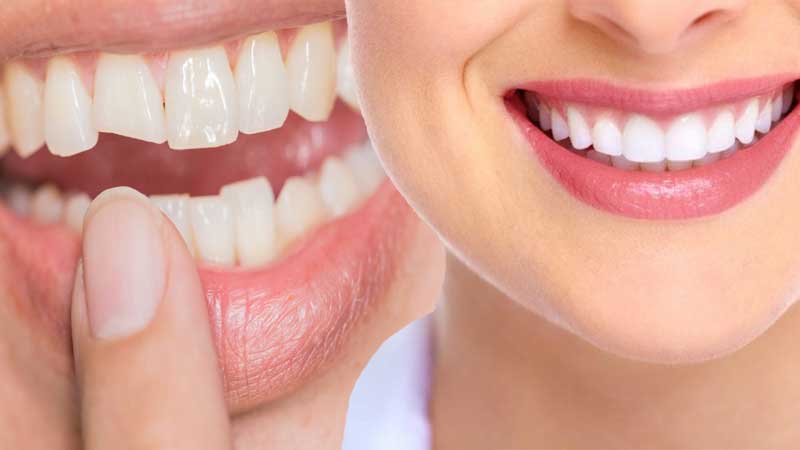Dental bonding is a fast, cost-effective cosmetic procedure that can transform your smile in just one visit. Whether you have minor chips, discoloration, or gaps, bonding is a versatile solution. But after you’ve had this procedure, it’s crucial to take proper care to ensure the results last. If you’ve recently searched for “Dental Bonding Near Me,” it’s likely that you’re looking for not only treatment but also guidance on post-care. Knowing what to avoid after dental bonding can significantly extend the life and appearance of your new smile.
Can Food and Drinks Affect Your Bonded Teeth?
Yes, your diet plays a major role in how well your bonded teeth hold up over time. Composite resin, the material used in dental bonding, is porous and can stain easily—especially during the first 48 hours after treatment. Foods and beverages with strong pigments should be avoided.
Avoid the following:
- Coffee and tea
- Red wine
- Berries (like blueberries and blackberries)
- Curry and soy sauce
- Dark colas
If you must consume any of these, use a straw to limit contact with your front teeth, and rinse your mouth with water afterward. Dentists, including the Best Dentist In Houston, often advise their patients to steer clear of staining foods immediately after bonding for optimal results.
Are There Habits That Can Damage Dental Bonding?
Absolutely. Dental bonding is durable, but not invincible. Everyday habits can wear down or even chip the bonded material.
Things to avoid include:
- Biting your nails – This can chip the resin and damage your natural teeth.
- Chewing on pens, pencils, or ice – Hard objects can cause cracks or dislodge the bonding.
- Opening packages with your teeth – Using your teeth as tools is a quick way to undo your dentist’s work.
- Smoking – Not only does this stain the bonding material, but it can also weaken your gum health overall.
If you’ve ever asked yourself, “Where can I find reliable Dental Bonding Near Me?” know that top-rated dental clinics will guide you on proper post-treatment care to avoid these pitfalls.
Should You Modify Your Oral Hygiene Routine After Bonding?
Yes, but only slightly. Maintaining a clean mouth is key to long-lasting dental bonding. While you don’t need special tools, being more mindful of your technique can help.
Here’s what to keep in mind:
- Use a soft-bristled toothbrush – This helps avoid scratching the resin.
- Floss gently – Bonding can extend between the teeth, so use care to avoid tugging on it.
- Avoid abrasive toothpaste – Whitening toothpaste often contains agents that can wear down composite resin.
- Rinse with a fluoride mouthwash – This helps strengthen enamel and protect the edges of bonded areas.
Ask the Best Dentist In Houston for product recommendations tailored to bonded teeth. Your oral care should support the integrity of both your bonding and natural enamel.
Is Teeth Grinding a Concern After Dental Bonding?
Teeth grinding or bruxism is one of the biggest threats to dental bonding. If you grind your teeth at night, the pressure can wear down or even crack the bonded areas. If your dentist detects signs of grinding, they may suggest a custom-fitted night guard.
If you’re actively looking for “Dental Bonding Near Me,” make sure the clinic also evaluates your bite and checks for bruxism. Prevention is key, and many of the Best Dentist In Houston offer mouth guards as a standard post-bonding solution for those who grind their teeth.
What About Physical Activity or Sports After Bonding?
While dental bonding doesn’t require long recovery, protecting your smile during physical activity is crucial. If you play contact sports or engage in activities with risk of impact, a mouth guard is highly recommended.
Custom-fit guards provide far better protection than over-the-counter versions. Many dental clinics that rank under “Best Dentist In Houston” offer custom mouth guards designed to protect both bonded teeth and your overall oral health.
How Soon Can You Eat After Dental Bonding?
Generally, you can eat right after the procedure once the resin has hardened. However, it’s best to wait a couple of hours to allow the material to set fully and reduce the risk of damage or staining.
Avoid extremely hot or cold foods in the first 24 hours as your teeth may be sensitive. If you were numbed for the procedure, make sure the numbness has worn off before chewing to avoid biting your cheek or tongue.
How Long Does Dental Bonding Last If You Follow These Tips?
Dental bonding typically lasts 3 to 10 years, depending on your oral habits and lifestyle. The more diligent you are in avoiding harmful activities and maintaining proper oral hygiene, the longer the bonding will stay in good condition.
Seeing your dentist every six months is essential. If you’re unsure where to go, a quick search for “Dental Bonding Near Me” or looking up the Best Dentist In Houston can guide you to a reputable clinic. Many clinics offer follow-up checkups and touch-ups for bonded teeth, helping to prolong their appearance and strength.
When Should You Contact Your Dentist After Bonding?
It’s time to call your dentist if:
- You feel any rough or sharp edges on the bonded tooth
- You notice discoloration
- The bonding becomes loose or falls off
- You experience sensitivity or discomfort that lasts more than a few days
Quick action can save the bonding from further damage and reduce the need for more extensive procedures. Experienced providers that rank among the Best Dentist In Houston often have emergency appointments for these types of issues.
Conclusion: Protect Your Investment in Your Smile
Dental bonding is a simple and effective solution to improve your smile, but it requires a bit of care and commitment after the procedure. From avoiding stain-causing foods and hard objects to maintaining proper oral hygiene and wearing protective gear during sports, your actions play a big role in how well your bonding holds up.
If you’re serious about your smile and are currently looking for the most trusted “Dental Bonding Near Me,” make sure you choose a clinic that prioritizes patient education and offers long-term care. Working with the Best Dentist In Houston ensures that you receive not only a beautiful smile but also the tools to maintain it for years to come.
By avoiding the common mistakes outlined above, you can make the most of your dental bonding and enjoy a confident, lasting smile.







